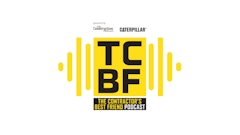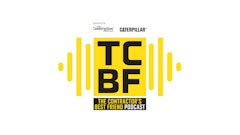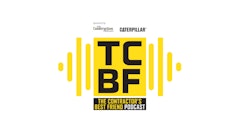
When I first started my commercial general contracting company over 35 years ago, I acted as both the field superintendent and project manager. After finding a potential customer who needed a project built, I estimated and bid the jobs, negotiated with the owner, prepared the contract and got it signed, and then supervised projects in the field. Since I was the estimator, project manager and field superintendent, it was easy to know what was included in the job, what special concessions were given to the owner, what value-engineering suggestions and alternates were accepted, and what promises were given or guaranteed.
As my company grew, turning over projects from sales and estimating to the project team (superintendent, project manager and foreman) became more difficult. During the sales process, all the promises, changes and concessions were often not written down or specifically documented properly. This created havoc as the project team tried to deliver what was promised versus written in the contract. Typical problems and issues that would happen during construction included specifications not matching owner’s expectations, subcontractors not knowing about accelerated schedules promised, unique jobsite requirements such as daily cleanup or offsite parking, delivery dates for owner supplied equipment or materials, crew manpower loading, weekend work hours, or enhanced construction quality details different from the plans or industry standards. Each of these issues and more caused numerous job conflicts, late schedules, non-reimbursed change orders, unhappy customers and lost profits.
No plan equals no plan
When starting a trip you always look at a map to plot the best way to get where you are going. In construction, building a successful project is no different. When you call subcontractors to schedule their work on a project, often their foreman and crew show up a few days later as requested. The first two questions they ask the project superintendent are: ‘Where do you want us to start?” and “Do you have a set of plans we can use?” When this happens, it’s obvious the foreman was assigned this project only a few hours ago, hasn’t looked at the plans or contract in advance, and doesn’t really know much about what’s required to meet the contractual requirements. For the next several days, this foreman and crew will wander around getting to know the job, waste several days of crew time, and not be able to get on track with their budget or schedule as bid. Not a great plan.
What do you do to ensure you’ll meet your project goals and objectives? After working hard to bid and land a contract, it takes just as much time to plan your plan. Based on my survey of 5,000 contractors, the average construction foreman spends less than 10 minutes a day planning the work for the crew. Part two of the survey asked if the foreman would take more time planning their jobs, would crew productivity improve? Ninety five percent said: Yes!” When you don’t plan, jobs take longer and cost more to build. When you get too busy working, micro-managing and putting out fires, you can’t make any money. A small investment planning your plan will make you the money you want to make. Successful contractors take time to plan, make planning a priority, make planning projects mandatory, and therefore make more money than those who don’t.
Start planning projects at the start
In order to get your construction projects turned over to the project production team properly, it takes a dedicated pre-project planning and preparation meeting. Before any project starts, get the salesperson and estimator who worked on the bid or proposal with the project team (project manager, project engineer, field superintendent, foreman and contract administrator) to take time to plan the job properly. This dedicated turn-over meeting must be mandatory and an integral part of how your company does business as projects get turned-over from estimating to the field team.
Project Team Turn-Over Meeting Agenda
Review:
- Proposal, Bid & Estimate
- Alternates & Value-Engineering
- Customer Issues & Special Requirements
- Contract Terms & Conditions
- Plans & Specifications
- Contract Documents
- Special Concessions or Promises
- Proposed Subcontractors & Suppliers
- Project Schedule & Critical Dates
- Project Site Conditions & Mobilization
- Payment & Cash-Flow Issues
- Architecture & Engineering Issues
- Constructability Issues
- Permits, Inspections & Approvals
- Safety & Quality Issues
Develop & Create:
- Project Start-Up & Mobilization Plans
- Project Goals & Targets
- Project Budget: Crew Hours Budget; Equipment Budget; Budget Tracking System
- Project Schedule: Material Ordering; Long Lead Items; Shop Drawings & Submittals
- Project Production Plan
- Project Safety Plan
- Weekly Field Tracking System
- Project Meeting Schedule
Plan to perform the plan
After you’ve dedicated and taken time to turn-over projects properly and create project production plans, your foremen and superintendents need time to get ready to build their projects efficiently, effectively and under budget. Before every project starts, successful contractors demand their foreman come into their office and spend plenty of dedicated pre-project time reviewing the estimate and budget to ensure they understand how many crew hours and equipment hours they have to build the project. They must also review or help create their weekly project tracking system to keep them updated during the job.
In addition, they need to review the plans, specifications, special project requirements, contracts, supplier list, and subcontractor scopes of work. Ask them to look at all the project plans and documents, layout their step by step production methods, develop a project sequence, review subcontracts, contact suppliers to review deliveries, visit the jobsite to observe logistics and mobilization challenges, meet with field superintendents to discuss job procedures and proposed scheduling, and basically get ready to make their projects successful.
This project pre-planning process may take as little as a few hours or one day for small jobs to as many as three weeks for complex larger multi-phased projects. Regardless, the time invested in planning your projects will be worth many times more than the cost. When your foreman and superintendents hit the job with a proper, well thought out plan, their projects will start fast and finish under budget with less conflicts and happy customers.
George Hedley CSP CPBC is a certified professional construction BIZCOACH and popular industry speaker. He helps contractors grow, make more profit, build management teams, improve field productivity, and get their businesses to work for them. He is the best-selling author of “Get Your Construction Business To Always Make A Profit!” available on Amazon.com. E-mail [email protected] to sign-up for his free e-newsletter, start a personalized BIZCOACH program, attend a 2 day BIZ-BUILDER Boot Camp, or get a discount at www.HardhatBIZSCHOOL.com online university for contractors. Visit www.HardhatPresentations.com for more information.



























